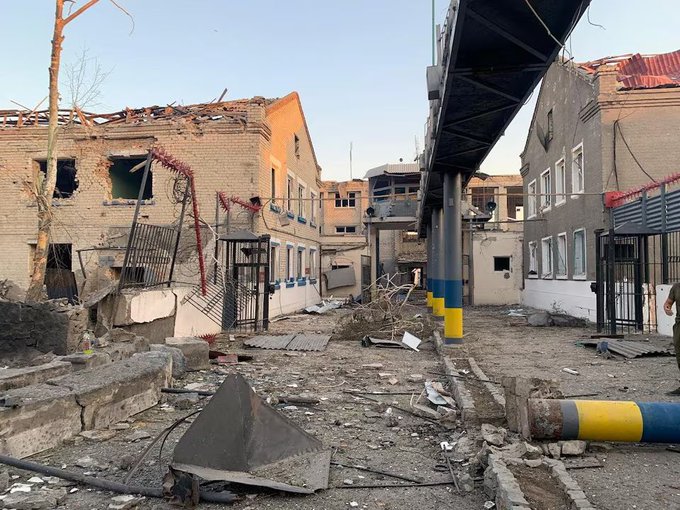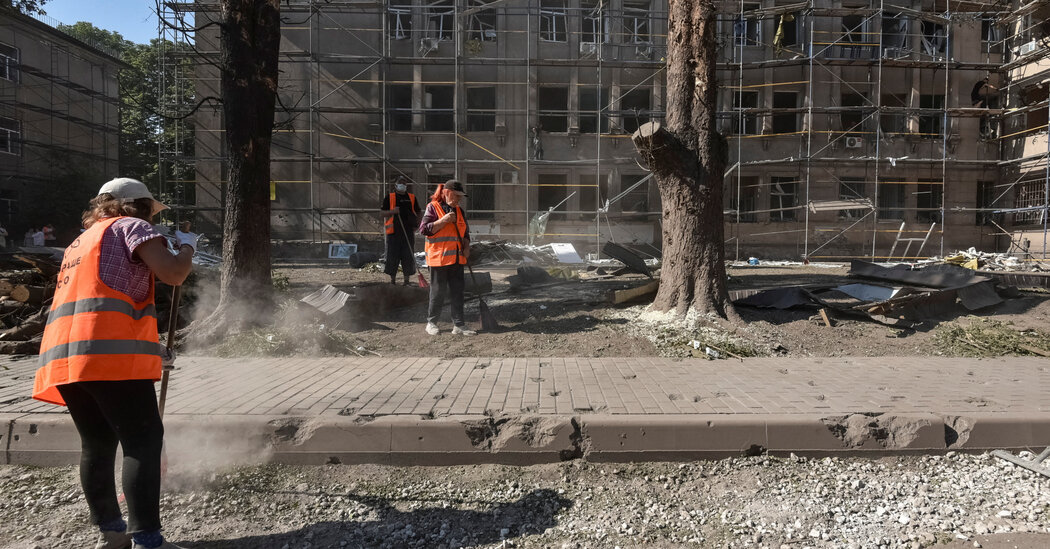Overnight on July 28-29, 2025, Russia launched a series of devastating air strikes across southeastern Ukraine, striking a prison in the Zaporizhzhia region and a hospital complex in the Dnipropetrovsk region, resulting in the deaths of at least 25 people and wounding scores more. These attacks come amidst heightened tensions and ongoing ceasefire discussions involving the U.S. and the administration of former President Donald Trump, who recently issued a stern ultimatum to Russia with a deadline of 10 to 12 days to move toward peace before facing harsh new sanctions.
The most lethal strike hit the Bilenkivska Correctional Facility in Zaporizhzhia, a frontline region heavily contested in the conflict. Four guided aerial glide bombs, a type of Soviet-era weapon retrofitted with modern guidance wings and capable of carrying large explosive payloads, were used to target the prison late at night. According to Ukrainian authorities, at least 16 inmates were killed instantly, with more than 40 others seriously injured. The prison’s dining hall was obliterated and other buildings on the grounds were damaged, though the perimeter fence held firm, preventing any escapes. The attack left inmates trapped in rubble and debris, many with severe injuries including burns and limb loss, and guards struggled to conduct roll calls under horrific conditions.
The strike on the prison is particularly notable because it represents one of the deadliest assaults on a detention facility since the full-scale invasion began over three years ago. Ukraine’s President Volodymyr Zelensky condemned the attack as a deliberate war crime, stating it was a “conscious, deliberate strike” targeting civilians illegally detained and protected under international humanitarian law. Ukraine’s human rights commissioner and UN monitors echoed this position, emphasizing that prisoners retain their right to life and protection, and that deliberately striking such facilities may constitute a serious breach of the laws of armed conflict.

Simultaneously, Russian missiles struck a hospital complex in the Dnipropetrovsk region. The attack damaged a three-story hospital building, a nearby maternity hospital, and other medical facilities. At least four people lost their lives in this attack, including a pregnant woman who was seriously injured and later died. Nine new mothers and their infants were reported to have fled the maternity ward amidst the chaos. Hospital staff and local officials condemned the strike, highlighting the severe humanitarian consequences of targeting medical infrastructure in the conflict.
These brutal strikes occurred just hours after former U.S. President Donald Trump publicly shortened the deadline he had given Russian President Vladimir Putin for agreeing to a ceasefire and peace negotiations. Trump, during a visit to Scotland, declared that Moscow had 10 to 12 days to demonstrate progress toward ending the war or face sweeping sanctions including measures targeting Kremlin revenue from oil exports. Despite this warning, Russian officials dismissed the ultimatum, with Kremlin spokesperson Dmitry Peskov reiterating that Russia’s military operations would continue unabated under what Moscow terms a “special military operation.” No indications of de-escalation or ceasefire materialized, as seen in the continued Russian air assaults on Ukrainian cities, towns, and civilian infrastructure.
The attacks on July 28-29 were part of a broader wave of Russian air strikes that targeted at least 73 towns and cities across Ukraine, leading to a total of 22 to 27 fatalities nationwide, according to multiple reports. These strikes included drone attacks and ballistic missile launches, with Ukraine defending against many drone incursions through air defense systems. Local officials reported multiple civilian casualties in other areas including a 75-year-old woman killed in a village hit by shelling and others injured in communities near the frontline.
The international community, including the United Nations and human rights groups, has voiced grave concern over the escalation of attacks targeting civilian facilities such as prisons and hospitals. Such strikes exacerbate an already dire humanitarian situation in Ukraine, where millions of civilians have been displaced, infrastructure destroyed, and more lives lost in the three years of conflict. The repeated targeting of protected facilities and non-combatants raises serious questions about compliance with international law and has intensified calls for urgent ceasefire and peace talks.
In conclusion, the recent Russian air strikes on a prison and hospital in southeastern Ukraine mark one of the deadliest nights in the ongoing conflict, underscoring the brutal nature of the war and the high human cost borne by civilians. These attacks come at a critical juncture, as the United States tries to exert pressure on Russia to agree to ceasefire terms through tightened deadlines and potential sanctions, but Moscow remains defiant. The international community watches closely, hoping for an end to the violence that has claimed thousands of lives and shattered communities across Ukraine.

